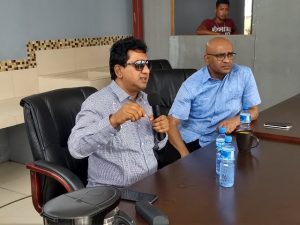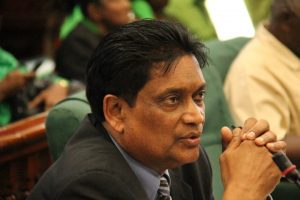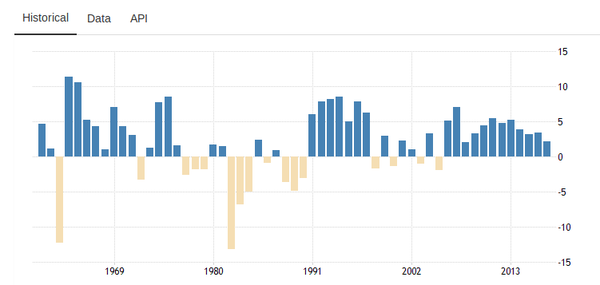
Opposition PPP frontbencher, Anil Nandlall and PPP Leader, Bharrat Jagdeo
March 26 2019
The Caribbean Court of Justice (CCJ) has set Friday to begin the groundwork for hearing an appeal of the Guyana Court of Appeal’s decision that last year’s no-confidence motion was not validly passed by the required absolute majority of 34 votes.
Opposition Leader Bharrat Jagdeo’s Attorney-at-Law, Anil Nandlall said the Trinidad-based CCJ headquarters would be holding a case management conference.
“At that conference, of course, we anticipate that the Caribbean Court of Justice will give the requisite directions on how the appeal goes forward,” Nandlall said on his Facebook Page.
He said the CCJ would likely direct all parties concerned to file submissions by set deadlines before a hearing begins.
Jagdeo’s legal team at the CCJ is being led by Trinidad and Tobago Senior Counsel, Douglas Mendes who had also unsuccessfully represented Cedric Richardson in a challenge of presidential term limits.
Nandlall, a former Attorney General and Minister of Legal Affairs, has meanwhile written to the Chancellor of the Judiciary Yonette Cummings-Edwards pointing out that at no time did he subscribe to the concept of absolute majority. He maintained that he would not “import” into Guyana’s constitution the concept of absolute majority and further argued that the majority of all members present and voting should be taken in its literal meaning as 33 votes.
“Needless to say that my written submissions mirrored my oral argumentations. I respectfully suggest that my position on this issue be accurately reflected in the final decisions that the court will hand down in these matters,” he told the Chancellor.

AFC DEFECTOR: Charrandass Persaud.
Justice of Appeal, Rishi Persaud dissented on that point unlike the Chancellor and Justice of Appeal, Dawn Gregory.
The State and private citizen Compton Reid lost their Guyana Court of Appeal cases on the points that although Charrandass Persaud is a dual citizen and he did not inform the House Speaker that he had planned to vote against the list of candidates from which he had been selected, his vote was still valid.
The Appeal Court also upheld the High Court’s decision that dual citizens could not constitutionally be a candidate and more so a parliamentarian, but a challenge could have only been brought by way of an elections petition or a constitutional motion. The courts here also agreed that immediately on the passage of a no-confidence motion, the President and the Cabinet stand automatically resigned and the President and government remain in office as caretakers to prepare for an election to be held within 90 days.
Meanwhile, former MP Persaud, who had voted in favour of the opposition-sponsored no-confidence motion, on Tuesday also applied for special leave for the CCJ to order that an elections petition is the only means by which to challenge the validity of a member of the National Assembly.
Persaud, through his Attorney-at-Law Sanjeev Datadin, similarly wants the Regional Appeal Court to find that 34 votes are required to pass a no-confidence motion on December 21, 2018 as “wrong in law and be set aside”.
Persaud, who was recalled from the House and expelled from the Alliance For Change political party, has asked the CCJ to hear the appeal “in the shortest possible time”.


